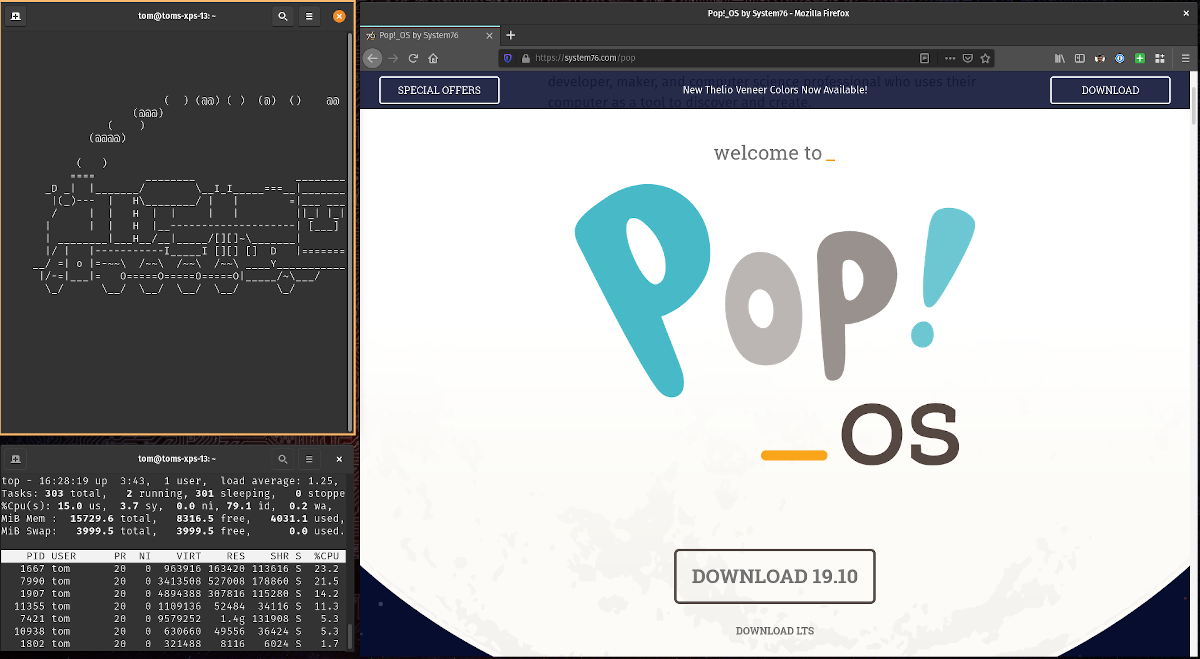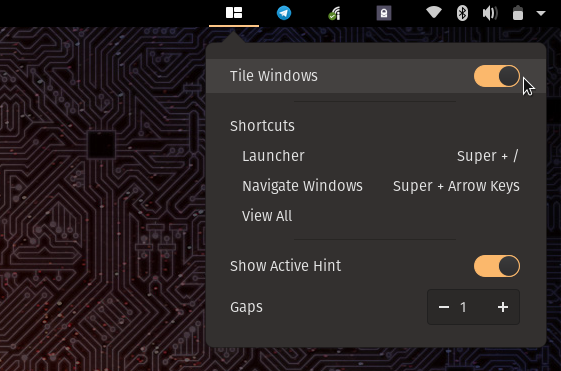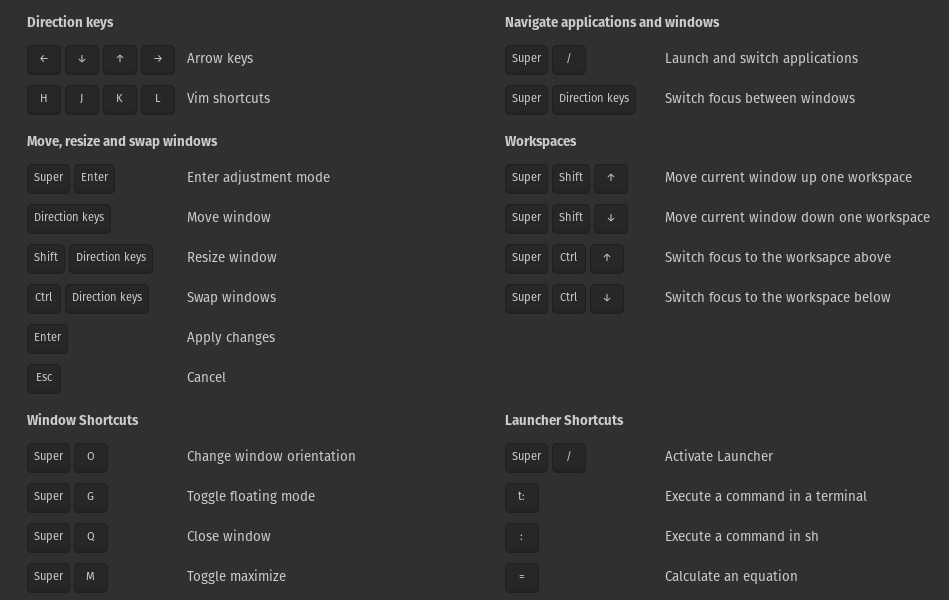Quick Thoughts About Pop!_OS 20.04

Pop!_OS is a Linux distro from System76, a company best known for making a variety of Linux computers. Pop!_OS is marketed towards data scientists, programmers and similar, but it is likely to suit a much more extensive range of people. Below I will share my thoughts on what makes Pop!_OS so nice to use for me, and about tiling which has been introduced with 20.04.
Pop!_OS, what I like about it
I am running Pop!_OS on my Dell XPS13 (9370) that I had been using Windows 10 on exclusively before this. For those wondering, no, I did not get the developer edition as that would not have had the fingerprint reader. In retrospect, the fingerprint reader is not something I use much, but at the time I felt I would like to have it. My first impression on installing Pop!_OS was that the performance was so much better. Under Windows 10 I would frequently get stutters when even doing tasks as simple as browsing. I feel that the main reason for the stuttering under Windows 10 was related to thermal throttling, but I am unsure why that would happen more under Windows.
My other surprise was that the battery life was great and higher than I had previously seen on this laptop. This was without installing any extra packages like tlp. Additionally, Bluetooth and WiFi worked great, and the only thing I have found missing is the fingerprint reader which I may look into more in the future.

The big win for me though was the excellent default UI (in my opinion) and the fantastic default keyboard shortcuts for opening the terminal, switching workspaces and customisation options. You could do this on any Linux distro, but I really appreciate having something out of the box that is most of the way there. It can be fun to customise, but it is nice to jump in and be productive almost straight away.
Finally, I find the software compatibility problem does not really exist that much anymore, at least for my use case. So much these days works via web applications which makes things a lot easier, but there are lots of dedicated applications too. VS Code, Slack, Thunderbird, Standard Notes and GoLand are just a few of the productivity applications I frequently use that have native versions available. InSync, along with a host of other options, is available to provide compatibility with OneDrive and Google Drive.
Tiling on 20.04
The most prominent new feature is the support for tiling. A quick flip of the switch to enable it and Pop!_OS will auto tile your windows for you. Of course, you have a lot of shortcuts available to quickly jump between windows, resize, change orientation, move to other workspaces and more. This does mean that the default shortcuts for navigating workspaces change since Super + Down would now change your active window the workspace action moves to Super + CTRL + Down. This seems to work well, and you can always change the defaults if you prefer.

On a laptop, I have found myself using the tiling commands a lot even when not plugged into a larger display to organise smaller windows such as for email and instant messaging. Then different workspaces for any applications that need a more substantial area to work with such as VS Code.
So far, the behaviour has made intuitive and feels as though it leads to some genuine improvements in productivity and a feeling of tidiness. Before I would give up on resizing every little window as other than things like full screen and 50/50 it could get rather tedious. Now it is straightforward to organise all those windows and yet very customisable. Those who have been using tiling window managers for a long time may still prefer to keep using what they are used to if they feel they offer some more features or prefer how they work. Certainly, for me, this has made me very reluctant to not use a tiling window manager in the future.